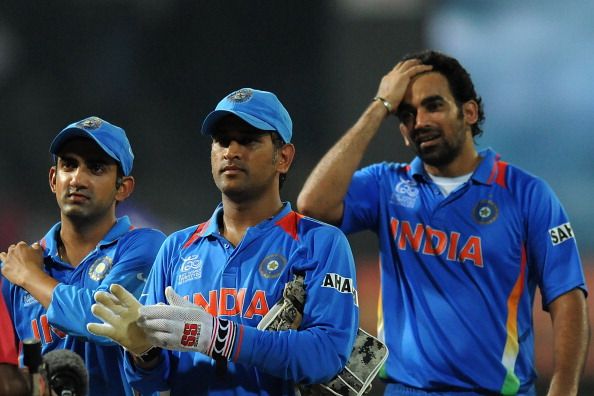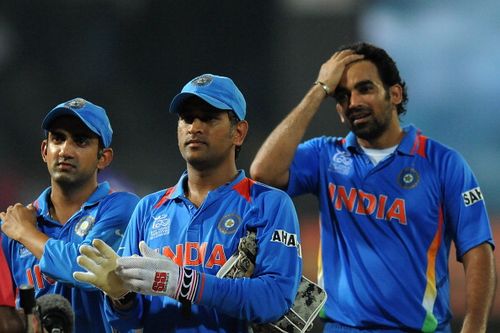
Why the seeding system in the T20 World Cup was complete rubbish

The 2012 edition of the T20 World Cup was held in Sri Lanka from 18th September to 7th October, and was deservedly won by a resurgent West Indies team, bolstered by its stars Chris Gayle, Marlon Samuels and contributions from all the players in their line-up. Watching them win was an emotional moment for many.
In the pre-match show Cricket Extra on Star Cricket, English batsman Kevin Pietersen said, “The world needs a good West Indies cricket team”. They proved to be better than just ‘good’, as they thrashed Australia and Sri Lanka in back-to-back matches to lift the trophy. The whole of India was particularly pleased with the total annihilation of the Aussies.
While I take nothing away from the efforts of the Windies’ players and admit that they absolutely deserve it, I have to take up the issue of the format of this competition, because it was completely rubbish. According to the official ICC rules, the Super Eight stages were pre-decided for the tournament, according to the following rule:
The seedings referred to in this clause were given in each group based on their T20 World Ranking before the tournament. This meant that India was seeded A2, as they were behind England in the rankings, and were destined to end up in Group-B if they beat Afghanistan and England too beat Afghanistan.
The major problem with this seeding system was that it led to what are called dead rubbers – matches that have no significance on the outcome of the tournament. The India v England Group-A match was an example of the aforementioned dead rubber – the fact that India won meant nothing in the tournament’s outcome.
The issue that I raise is that the World Cup is a tournament – and tournament outcomes should be decided on the performance of the teams in the tournament, not on the basis of their rankings.
The final standings in the Super Eight stages took the following form -
| GROUP E | ||||||
| TEAM | P | W | L | D | PTS | NRR |
| Sri Lanka | 3 | 3 | 0 | 0 | 6 | 1.00 |
| West Indies | 3 | 2 | 1 | 0 | 4 | -0.38 |
| England | 3 | 1 | 2 | 0 | 2 | -0.40 |
| New Zealand | 3 | 0 | 3 | 0 | 0 | -0.17 |
| GROUP F | ||||||
| TEAM | P | W | L | D | PTS | NRR |
| Australia | 3 | 2 | 1 | 0 | 4 | 0.46 |
| Pakistan | 3 | 2 | 1 | 0 | 4 | 0.27 |
| India | 3 | 2 | 1 | 0 | 4 | -0.27 |
| South Africa | 3 | 0 | 3 | 0 | 0 | -0.42 |
Now, I present a hypothetical situation in which points from the group stages are carried forward to the Super-8 stages. Some of you might argue that the margin of victory over a minnow team might not be a reflection of how good the team is. I think so too, so I have only counted results between teams that made it to the Super-8 stages. For example – India and England both carry points from their match in the group stages, as do South Africa and Sri Lanka, West Indies and Australia, and Pakistan and New Zealand.
If this were the case, the rankings would have looked like this -
| GROUP E | ||||||
| TEAM | P | W | L | D | PTS | NRR |
| Sri Lanka | 4 | 3 | 1 | 0 | 6 | 0.40 |
| West Indies | 4 | 2 | 2 | 0 | 4 | -0.60 |
| England | 4 | 1 | 3 | 0 | 2 | -1.44 |
| New Zealand | 4 | 0 | 4 | 0 | 0 | -0.29 |
| GROUP F | ||||||
| TEAM | P | W | L | D | PTS | NRR |
| India | 4 | 3 | 1 | 0 | 6 | 0.99 |
| Australia | 4 | 3 | 1 | 0 | 6 | 0.70 |
| Pakistan | 4 | 3 | 1 | 0 | 6 | 0.35 |
| South Africa | 4 | 1 | 3 | 0 | 2 | 0.11 |
India would have made it through courtesy of their resounding 90-run victory over the defending champs, England.
Also, it is worthy to note that in the group stages, all teams of Group-F (India, Australia, Pakistan, South Africa) beat their respective counterparts of Group-E (England, West Indies, New Zealand, Sri Lanka). How is it fair that the top teams from the four groups be pitted together in the same group in the Super Eights?
Clearly, this is something for the ICC to think about. I began to ponder over this when Dada raised the same issue in the post-match show after India beat South Africa and could not make it through on NRR. He is a man of very accurate views and he isn’t afraid to speak his mind. Check out the video here: